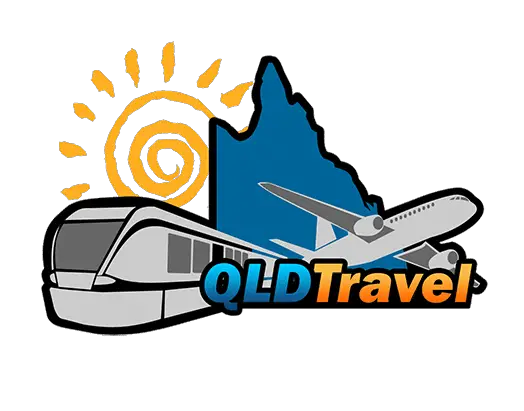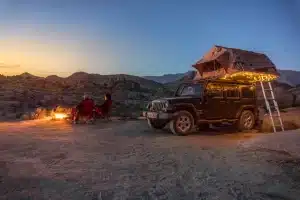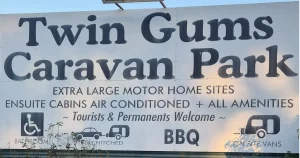The Touring Setup Checklist: What You Need Before Hitting the Open Road
For car and travel enthusiasts, few things compare to the freedom of hitting the open road with everything packed and ready for a grand touring adventure. Whether you’re venturing into remote outback terrain or cruising coastal highways, the right setup can make the difference between a trip filled with unforgettable memories and one plagued by preventable problems. From safety and visibility to comfort and convenience, here’s a comprehensive touring setup checklist to ensure you’re prepared before turning the key and rolling out.
1. Tow-Ready Vehicle and Accessories
If you’re towing a caravan, camper trailer, or boat, your first priority is making sure your vehicle is properly equipped for the load. A heavy-duty tow bar is a must, but it’s just the beginning.
High-quality clearview mirrors are essential for anyone towing. These extendable towing mirrors offer a wider field of vision and reduce blind spots, giving you full visibility down the sides of your rig. They’re not just a convenience—they’re a safety feature and, in many cases, a legal requirement. When you can clearly see vehicles approaching from behind or alongside your trailer, you’re better equipped to change lanes, reverse, and navigate tight roads confidently.
Complement these with an electronic brake controller and weight distribution hitch to enhance stability and braking performance.

2. Recovery Gear and Off-Road Essentials
If your journey takes you off the beaten track, don’t leave without a solid recovery kit. That includes:
- Rated recovery straps
- Shackles and snatch blocks
- A high-lift or bottle jack
- MaxTrax or recovery boards
- A shovel
- Tyre deflator and compressor
It’s also wise to carry a puncture repair kit and a spare tyre (or two) in good condition. Touring through rough or remote terrain without these essentials can turn a minor mishap into a major delay—or worse.
3. Navigation and Communication Tools
While smartphone apps and Google Maps are handy, they’re not always reliable in remote areas with limited signal. A dedicated GPS with topographic mapping or a HEMA off-road navigator is a smart investment for serious tourers. Satellite phones or UHF radios can also be lifesavers in areas without cell coverage.
Don’t forget a good old-fashioned paper map as a backup. It might feel old-school, but it’s still one of the most dependable tools in your travel arsenal.
4. Fuel and Water Storage
When you’re touring long distances, especially in regional or remote parts of Australia, you can’t rely on finding a service station when you need one. Always carry extra fuel in approved jerry cans—securely mounted to your vehicle or trailer.
Water is just as critical. A minimum of 5 litres per person per day is recommended, plus extra for washing and emergencies. Installing a permanent water tank or carrying high-capacity containers will keep you self-sufficient, even in the middle of nowhere.
5. Camping and Sleeping Gear
If you’re not pulling a caravan, your vehicle or trailer should be equipped with quality camping gear. This includes:
- Swags or rooftop tents
- Sleeping bags rated for the local climate
- Fold-out chairs and tables
- A reliable awning for shade and rain protection
- LED camp lights and head torches
A well-thought-out camping setup turns any patch of earth into a comfortable overnight stop.
6. Power and Cooking Setup
Whether you’re touring with a camper trailer or fully self-contained vehicle, a dual battery system is a game-changer. It powers your fridge, lights, and accessories without draining your starter battery.
A portable solar panel adds extra charging capability, especially if you’re planning extended stays off-grid. For cooking, a dual-burner gas stove or compact campfire cooking setup covers your basic needs, along with a quality esky or fridge/freezer like a Dometic or Engel.
7. Storage and Organisation
Space is limited on the road, so efficient storage is critical. Drawer systems in the rear of your vehicle help keep gear organised and accessible. Use labelled tubs or soft storage bags to separate tools, food, clothing, and camping gear.
Make sure heavy items are stored low and securely fastened. A messy setup not only wastes space—it can be a hazard if you need to brake suddenly.
8. Safety and First Aid
A comprehensive first aid kit is a non-negotiable. Include extras like snake bite bandages, antiseptics, and any personal medications. Also carry:
- A fire extinguisher
- Emergency beacons or PLBs
- A torch with spare batteries
- A well-stocked tool kit
Before every trip, do a walk-around inspection of your vehicle—tyres, brakes, lights, and towing gear included. Make sure your Clearview mirrors are locked in place and adjusted properly before setting off.
9. Entertainment and Comfort
While the adventure is in the journey, a bit of comfort goes a long way. A good playlist, audiobooks, or travel podcasts can make long drives more enjoyable. Pack pillows, insect repellent, sunscreen, and weather-appropriate clothing to keep things comfortable.
If travelling with kids or pets, make sure they have their own gear and entertainment options.
Final Thoughts
Touring is one of the most rewarding ways to experience the beauty and diversity of the land. But preparation is everything. With the right gear—starting with essential towing aids like modern Clearview mirrors – you’ll enjoy the journey with confidence, comfort, and peace of mind.
So do your checks, pack smart, and embrace the road ahead. The open highway is calling.





